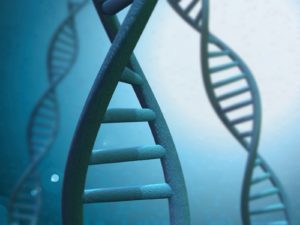DNA Linked to Longer Life?

Do people live longer because of their nutritional practices and lifestyle, or because of their unique set of genes? It’s a conundrum scientists have probed for decades, and it’s received increased attention from biologists following the completion of the Human Genome Project.
A Dutch woman, Hendrikje van Andel-Schipper, lived to 115 years old and chose to donate her body to science at age 112. She pre-humously attributed her longevity to refraining from alcohol, smoking and other lifestyle practices. Geneticists are ostensibly looking for a more DNA-based attribution. They hope to discover a genetic blueprint which is predisposed to longer life.
Since the majority of deaths result from disease, scientists first probed for the number of disease-associated genes and compared them to the quantity present in other Dutch individuals. This was a dead end. They found that Andel-Schipper’s numbers did not materially differ from the other samples.
This would intuitively lead us to the alternative conclusion – that her long life is linked to her lifestyle. This might be the more logical conclusion, but there are unquestionably some diseases and physiological conditions that are more likely to occur in specific gene pools (e.g., sickle cell anemia, male pattern baldness, color and stereo blindness), irrespective of lifestyle. Numerous studies have been conducted in the past attempting to link long life to certain lifestyle characteristics, such as religiousness, fitness level, intelligence level or IQ, coffee addiction, etc., and failed to establish any meaningful association. The best that can be said at this point is that positive lifestyle habits such as high fitness and good cardiovascular health may cultivate a healthier life, but not necessarily a longer one.
Scientists have a lot to explore in finding DNA linkages and instead conclude here that they would need to study the genomes of a much greater population of centenarians—individuals living longer than 100 years—to make any substantive inferences.
External Link: No Shortage of Dangerous DNA


Comments